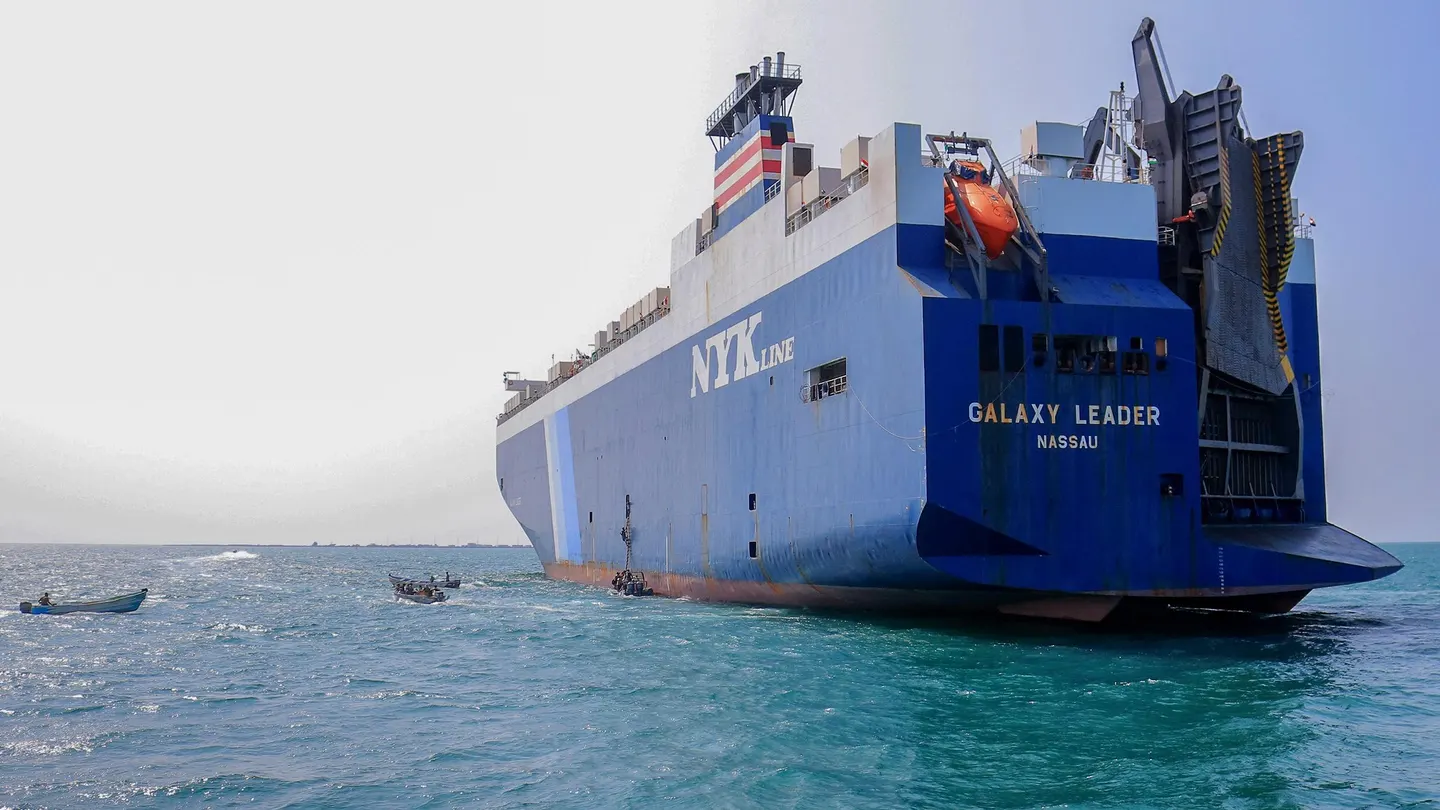Insurance providers restrict coverage for UK, US, Israeli ships
War-risk rates have surged from 0.01% of the vessel value in early December to the current 0.7%, resulting in a significant rise in insurance costs.
-

Undated picture of the Israeli-owned Galaxy Leader which was captured by the Yemeni resistance in November 2023 (AFP)
A growing number of insurance providers are opting to withhold coverage for vessels associated with the United States, the United Kingdom, and "Israel" against war risks in the Red Sea.
This hesitancy among insurers aligns with recent advisories from US officials cautioning American merchant vessels to avoid the strategic waterway until further notice.
"Some insurers are no longer willing to underwrite war-risk insurance for vessels with ownership or involvement with the US, UK, or Israel traveling through the Red Sea," said Marcus Baker, the global head of marine, cargo, and logistics at Marsh, the insurance brokerage, and risk advisory unit of Marsh McLennan.
The situation escalated when a US-owned and operated cargo ship was targeted by the Yemeni resistance with a ballistic missile on Monday, as reported by US Central Command.
Expressing intent, a Yemeni official declared on Wednesday that attacks on Israeli-linked vessels in the Red Sea and the Arabian Sea would persist.
"While not all insurers are imposing such restrictions, the insurance market is unmistakably tightening, and there is potential for further rate increases," Baker pointed out.
The surge in war-risk rates is evident, rising from a mere 0.01% of the vessel value in early December to the current 0.7%. To put it in perspective, insuring a $100 million container ship has seen costs escalate from $10,000 per voyage to a staggering $700,000 today. The industry anticipates ongoing challenges, and stakeholders are closely monitoring developments in the region.
Read more: Yemeni Armed Forces target US-owned Genco Picardy in Gulf of Aden
Over the past week, the US and UK carried out a series of aggressions against Yemen, including strikes on the capital Sanaa and the coastal governorate of Hodeidah. This raised global fears of a cycle of new escalations, especially after Yemen declared an "inevitable" response is coming.
The attacks on Yemen come due to its enforced ban on Israeli and "Israel"-bound ships from passing through the Red and Arabian seas in response to the occupation's ongoing genocide in Gaza. In their most recent operation, the Yemeni Armed Forces targeted and hit the Zogravia in the Red Sea on Tuesday.
Nippon Yusen is the operator of the Galaxy Leader, the ship owned by Israeli billionaire Abraham Ungar that was captured by the Yemeni Armed Forces last November.
On Tuesday, two other major Japanese shipping firms - Kawasaki Kisen and Mitsui O.S.K. Lines - also suspended sailing through the Red Sea
Yemen reiterates shipping safety in Red Sea amid US propaganda
The Yemeni Foreign Ministry on Tuesday called on maritime shipping companies to pursue their operations in the Red Sea "as long as they are not heading to the Zionist enemy."
The ministry said in a statement that operations targeting ships in the Red Sea are solely "limited to ships owned by the Israeli enemy or those heading to the ports of occupied Palestine."
In a post on social media platform X, the head of the Sanaa negotiating delegation Mohammed Abdulsalam stated that the suspension of operations by certain shipping companies in the Red Sea was the result of pressures and exaggerations exerted by US propaganda.
"What several shipping companies declare by suspending their operations, citing increased risks in the Red Sea, is a result of American pressures and exaggerations. It is an inaccurate stance that aligns only with the biased American propaganda," Abdulsalam wrote.
"Hundreds of ships continue to pass through the Bab el-Mandeb strait daily. We reaffirm that there is no restriction on any ship except those associated with the criminal Zionist enemy or those heading to its ports in the occupied Palestine," Abdulsalam added.
Read more: Biden-Netanyahu cooperation 'root' of regional insecurity: Iranian FM

 4 Min Read
4 Min Read








